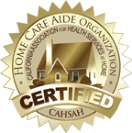Blood pressure is how hard your blood pushes against the walls of your blood vessels as it flows through your body. A blood pressure reading of 140/90 is generally considered high; it falls under Stage 1 Hypertension (another term for high blood pressure). Hypertension is a lifelong disease and can lead to serious health problems.
High blood pressure is commonly referred to as a “silent killer” as it has no noticeable symptoms. The only way to know if you have it is to have a blood pressure test. Have your blood pressure measured during each doctor visit. If your blood pressure is consistently higher after each visit, you may be diagnosed with hypertension. If left untreated, high blood pressure may lead to: headaches; dizziness; tiredness; tension; and shortness of breath. It can result in heart attack and stroke, and contribute to the development of congestive heart failure (CHF), renal failure, and peripheral vascular disease.
For most people, there may not be a specific cause for high blood pressure. However, there are characteristics that may contribute to high blood pressure. These may include: age; family history; gender; and ethnicity. Studies have shown that as age increases, the likelihood of having high blood pressure also increases; it affects nearly 1 in 3 US adults. African-Americans tend to develop high blood pressure at an earlier age; this is believed to be genetically and environmentally related. High blood pressure can run in families. And men are more likely than women to get high blood pressure prior to age 45; after menopause, women tend to have higher levels of blood pressure than men of similar age.
There are lifestyle changes that you can do at home to lower your blood pressure. 1. Check your blood pressure on a regular basis. Your doctor may recommend special equipment and instructions. 2. Eat a healthy diet. Follow reduced cholesterol and reduced saturated fat diet; limit caffeine and alcohol intake; read labels; bake, broil, steam foods; and consume recommended amounts of fruits, vegetables, and grains. It also helps to limit intake of sodium and reduce the amounts of red meats, sweets, and sugar-filled beverages. Talk to your doctor before starting a healthy eating plan. 3. Get regular physical activity. First, talk to your doctor about starting an exercise program. 4. Reach a healthy weight (or maintain an ideal weight for your body build, size, and gender). 5. If you smoke, quit (and avoid others’ smoke). Smoking increases risk of heart attack, stroke, and other health problems, especially if one has high blood pressure. 6. Identify stressful situations and avoid them or modify your reactions; develop and use relaxation techniques as needed.
Medications work well with most people; pharmacologic treatment for hypertension in people older than age 60 has decreased the incidence of coronary events significantly. Once your doctor prescribes medications, follow the drug regimen and report any side effects right away. Monitoring your blood pressure at home may help to find out if your treatment plan is working. Keep in mind, home monitoring is not a substitute for regular visits to your doctor’s office, even if you have reached your desired blood pressure level.







